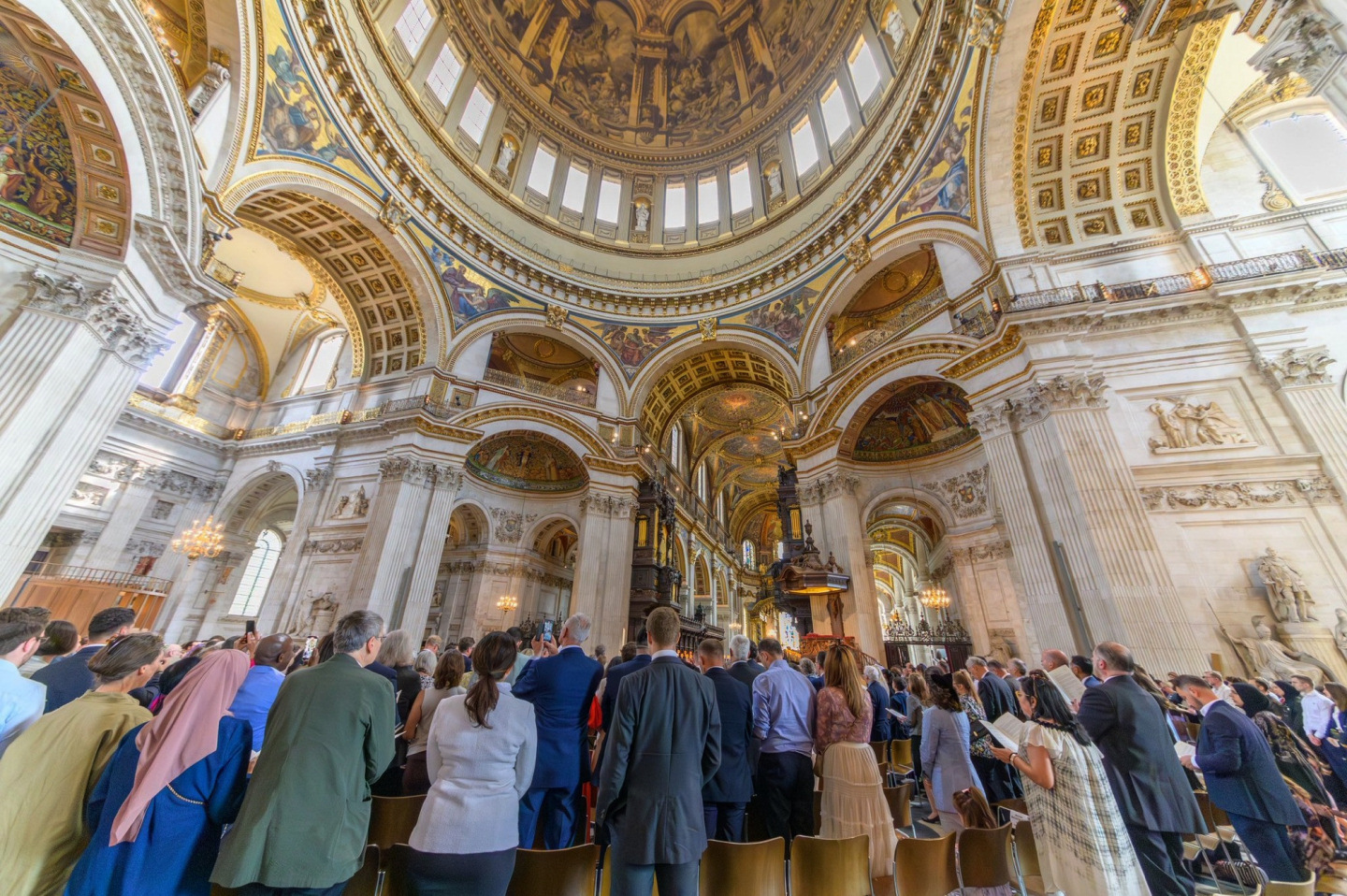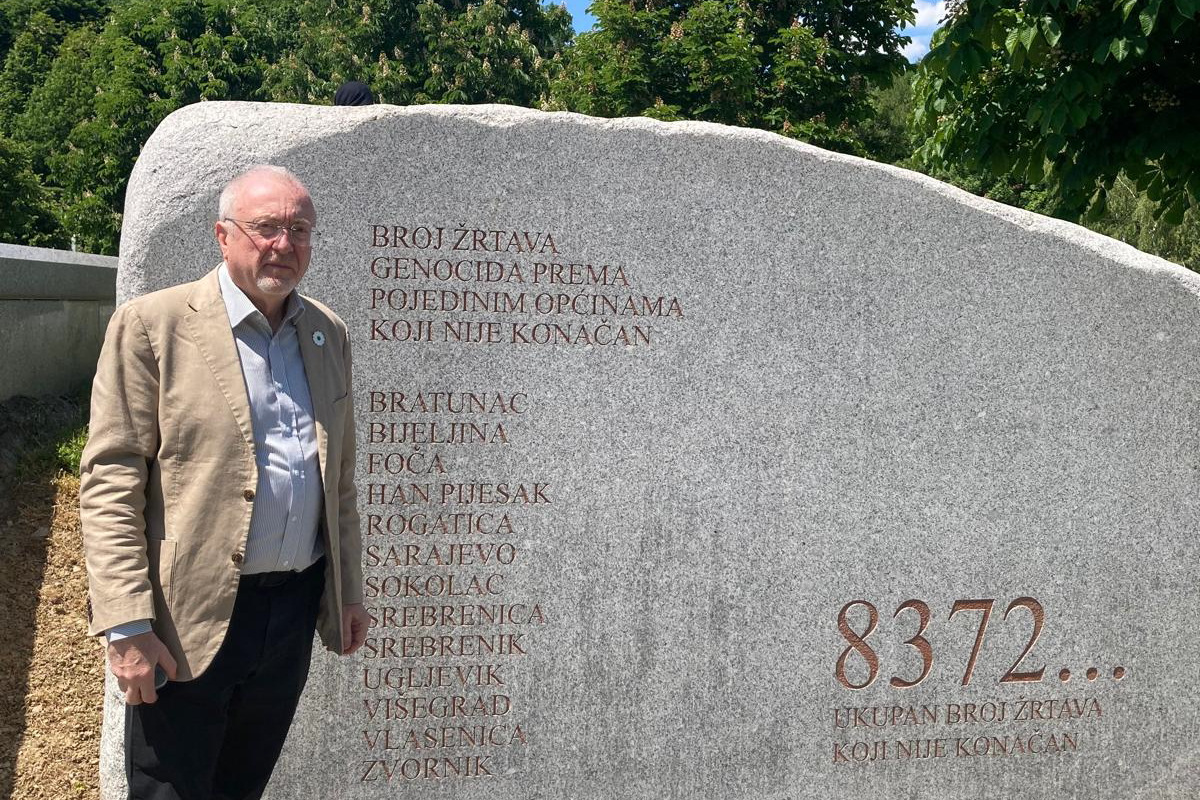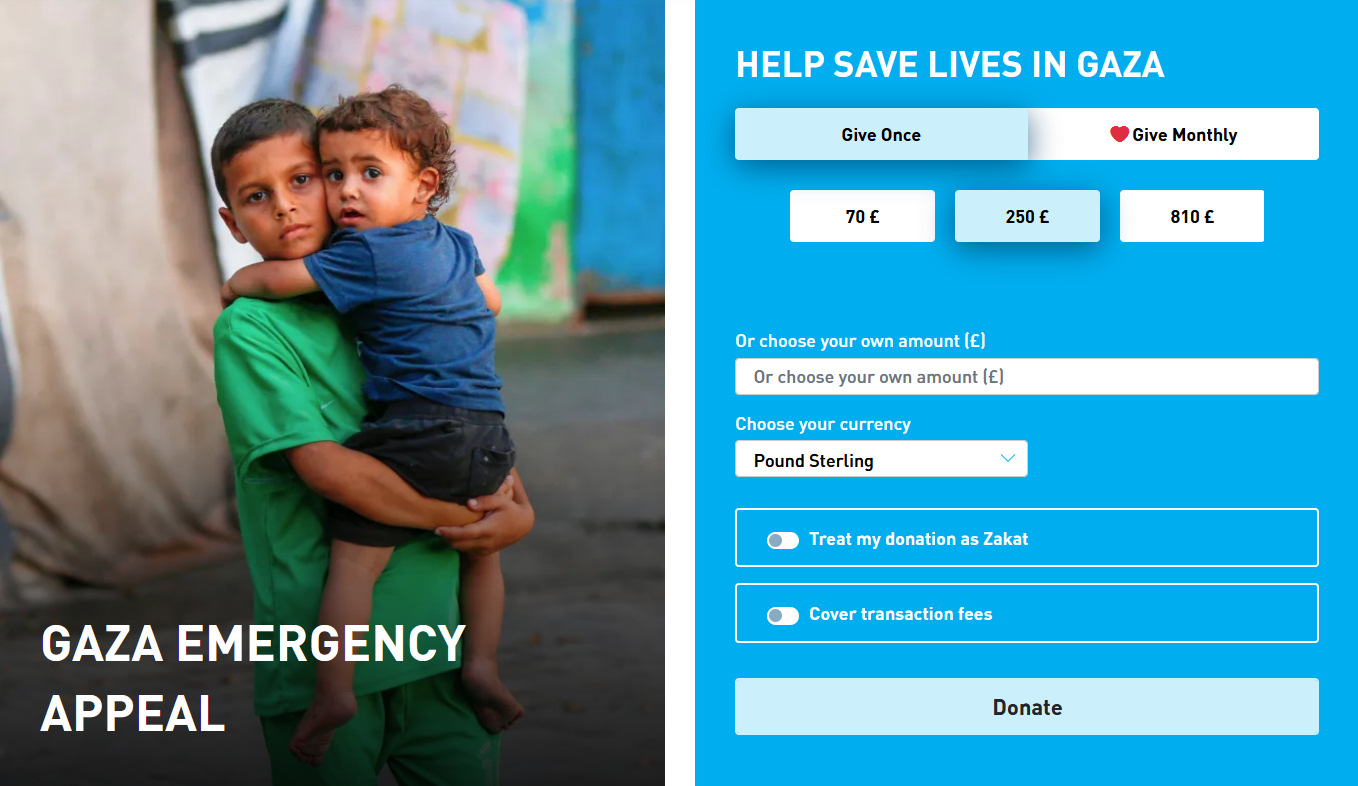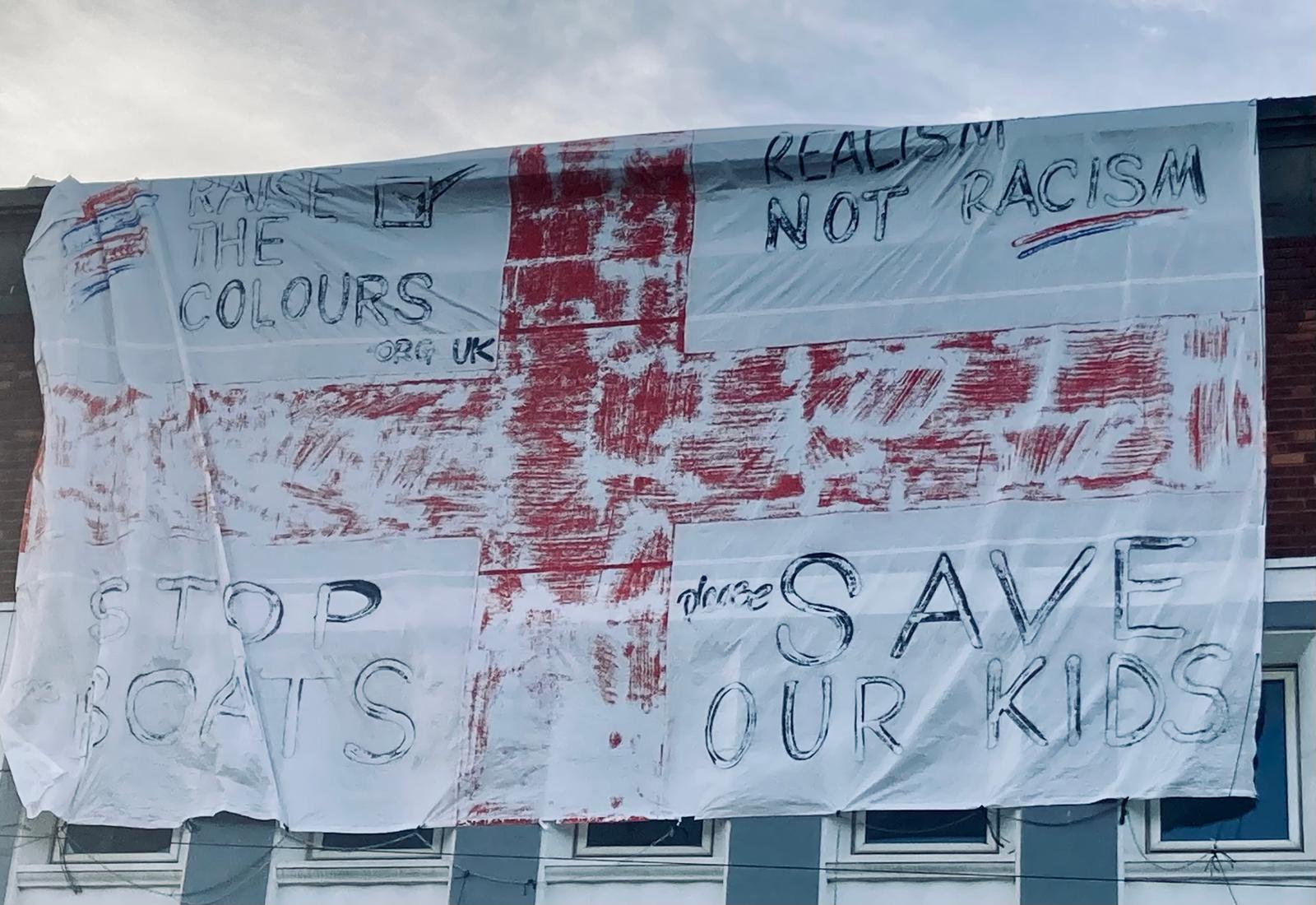This is my first blog post for over two months. Apologies that it is a lot longer than usual but there feels like a lot to reflect on this year.
At the start of the year I took over as Director of Remembering Srebrenica UK – a charitable initiative established to commemorate the Bosnian genocide of the 1990s. 2025 has been a particularly special year for us. July marked 30 years since 8,372 men and boys were systematically murdered near the town of Srebrenica in north-eastern Bosnia. They were murdered simply because they were Muslims. The United Nations has described it as the worst atrocity to have taken place on European soil since the Holocaust.
Memories of Bosnia and Herzegovina in the 1990s are particularly stark for me. I was first elected as a Member of Parliament in 1992 – the year that the Bosnian war started. Nobody who was in Parliament at that time can claim that we did not know what was going on. We knew that the people of Sarajevo were surrounded for three years by Serb forces, We knew that they were subject to daily shelling and that men, women and children risked being shot by snipers when they left their homes to try to collect food or fresh water for their families. We knew that Serb leaders were openly taking of their ambition to “ethnically cleanse” large parts of Bosnia of their Muslim inhabitants. We had thought that we would never again see emaciated prisoners being held in concentration camps in Europe after 1945. But, eyewitness testimony and photographs by Guardian journalist Ed Vulliamy and others forced us to face the fact that it was happening again in 1992 Bosnia.
We knew these things were going on and we let them happen. Some of us argued at the time that the international community – the UK included – should intervene to stop the atrocities that were taking place on our European doorstep. We also said that if the international community was not prepared to act itself, countries like ours should at least allow the recognised government of Bosnia and Herzegovina to acquire the arms they needed to defend their people. We did neither for three years between 1992 and 1995. Under the John Major government, Britain was one of the biggest blockages to effective action being taken. It all led to genocide being allowed to take place in Srebrenica and it shames us to this day.
Remembering Srebrenica UK works to pay tribute to those who lost their lives. We also stand with the families who continue to live with the intergenerational trauma that the 1990s left amongst the people of Bosnia and Herzegovina, and who continue to work for the perpetrators of the genocide to be held to account.

In June, St Paul’s Cathedral hosted a packed service commemorating the Srebrenica genocide and Remembering Srebrenica’s network of community champions organised scores of remembrance events across the regions and nations of the UK in the run up to 11th July – the official UN Day of Reflection and Commemoration of the 1995 Srebrenica Genocide. All were a demonstration of our determination that what happened in the 1990s must never be forgotten.
Remember Yesterday. Act Today…
But Remembering Srebrenica UK is not only about the past. Our motto is “Remember Yesterday, Act Today”. Our mission is to learn and act on the lessons of the 1990s for what is going on in Bosnia and Herzegovina itself, in the wider world and here in the UK.
In Bosnia and Herzegovina…
I visited Bosnia in May, where I was told that the tension is today greater than it has ever been since the 1990s. Encouraged by Moscow and the current government of Serbia, extreme ethno-nationalist politicians leading Bosnia’s own Serb communities are again fanning the flames of division and sectarianism, even denying that the 1990s genocide took place and glorifying the perpetrators.

Never has it been more important to safeguard the integrity of Bosnia and Herzegovina. It is not easy. The Dayton agreement that brought the 1990s war to an end has left Bosnia and Herzegovina to this day with a messy and dysfunctional constitution. But the perils now facing the country make it even more urgent to stand by those who uphold democracy with equal rights for all citizens irrespective of whether they are from the country’s Bosniak Muslim, Orthodox Serb or Catholic Croat communities.
The international community failed the people of Bosnia in the 1990s. We must not do so again.
In the wider world…
After the horrors of the Nazi Holocaust, the world said “Never Again.” Yet the genocides in Bosnia and Rwanda were still allowed to take place in the 1990s and genocidal actions continue to be committed in Myanmar and in Western China. In Sudan today, civilians also suffer butchery week in, week out.
And in Gaza, over 65,000 people – most of them civilians – have been killed in the military onslaught that the Israeli government launched in the aftermath of the Hamas attack that killed nearly 1,200 and took over 250 people hostage. Israeli restrictions on the entry of food, medicines and other aid have also created a man-made famine in Gaza with the grotesque spectacle of thousands gunned down while they were simply trying to get food and water for their families. Bosnians who endured the 1,425 day siege of Sarajevo in the 1990s know the parallels are real.

Meanwhile, not far away in the occupied West Bank, Israel’s government is giving a green light to the dispossession of thousands of Palestinian families by armed settlers. In Gaza, senior Israeli ministers have made no secret of their ambition to expel the entire Palestinian population of two million altogether.
As I write this article, US President Donald Trump had just published a 20-point plan that he says can bring the war in Gaza to an end. The plan is woefully ambiguous and short on detail. It is also a plan that is demonstrably one-sided, with the Palestinians themselves having been bypassed in the discussions that preceded the plan’s publication in Washington on September 29th. Nobody yet knows whether the shortcomings of the plan will make it a false dawn in practice, despite the expansive claims that Trump has made about it. After two years of unimaginable suffering however, the people of Gaza and the families of hostages held by Hamas understandably hope against hope that this is the beginning of the end of the nightmare. There hopes are shared by all of us.
It should never have been allowed to come to this. International leaders have regularly expressed their horror about what has been going on in Gaza but they have persistently refused to apply tangible pressure on the Government of Israel to stop carrying out actions that a United Nations Commission of Inquiry has concluded have the hallmarks of genocide. The contrast with the sanctions rightly imposed on Russia over its invasion of Ukraine is stark.
The truth is that the lessons of Srebrenica have again not been acted on. World leaders are again allowing ethnic cleansing to take place even though the International Court of Justice has ruled that all countries have a responsibility to protect the Palestinian people from the risk of genocide.
As Professor of Holocaust Studies, Amos Goldberg of the Hebrew University of Jerusalem, said in a call to action over Gaza, “we don’t teach about genocides in order to realise it retrospectively. We teach about it in order to prevent it and to stop it.”
Whatever happens to Trump’s plan for Gaza, we must continue to call on world leaders – including our own government – not only to listen to Professor Goldberg’s words but to act on them.
And here in the UK…
Mercifully, here in the UK we have been spared the horrors suffered by the people of Bosnia in the 1990s and the peoples of Palestine and elsewhere today.
But the thousands of gravestones that mark where the Srebrenica genocide took place provide a warning for us here in the UK too.
Hate crimes are on the rise – often targeting people because of their origins or their religious, ethnic, gender and sexual identities.
The spread of hate happens in a context and the context here in the UK is important. Many people feel genuine anxiety about their own and their families’ futures when the cost of living continues to rise, when public services are under immense strain. Too often, people also feel left behind by a political system that seems self-serving and out of touch with the reality of their lives
In my own part of Birmingham, and elsewhere, these kinds of things lay behind the fact that so many people voted for Brexit back in 2016. In reality, Britain’s membership of the European Union was never at the root of the economic problems that our country has faced. The fact that the economic problems have got worse since Brexit underlines this. But, whatever opinions any of us may have about Brexit, getting by in daily life is a genuine stress for many families today as inequality has deepened. The sense of grievance felt by so many is real.
At times like this it is also not surprising that people look for an external cause for their grievances. Britain’s membership of European Union fitted the bill a decade ago. Now, immigration takes centre stage – both in the UK and across Europe as a whole.
Every year, many thousands of people flee war, persecution and destitution overseas. Contrary to popular belief, most refugees end up in countries next to the place of conflict – in Africa, the Middle East and parts of Asia. But, increasing numbers also head for Europe in the hope of a better life. Exploited by criminal gangs, some are so desperate that they risk their lives in small boats crossing the English Channel.
There is, of course, a genuine debate to be had about how countries like ours should respond to massively increased levels of global migration and what it means for the domestic and foreign policies of governments. There is not the space in this article to explore either the issues themselves or the policy options to address them. But I do want to say something about what the lessons of Srebrenica can teach us about the atmosphere that is growing in Britain today.
People have a right to protest if they believe the government is getting it wrong on immigration, just as much as they have the right to demand change in any other aspect of government policy. But that was far from the whole story of what has been seen on the streets of Britain for the past two summers. Protest action has often been directed not at policies but at people. Hotels suspected of hosting asylum seekers have been amongst the most obvious targets, with threats to and, in some cases, actual violence against those living inside.
There is ample evidence of agitation by extreme Far Right groups and their involvement in the ugly scenes witnessed on the streets of this country. In the meantime, while parties on the populist Right such as Reform UK deny any association with violence, the drumbeat of their words still contributes massively to creating an atmosphere of hostility towards migrants stigmatised as “others” even if they have lived here for decades.
In this context, otherwise innocent or even laudable acts can take on a subliminally threatening character. Union flags and flags bearing the Cross of St George appeared on lamp posts in towns and cities across England in August. Albeit on a smaller scale, flags with the Saltire were put up on lamp posts in several Scottish towns too.
Birmingham has been the epicentre of the movement to raise these national flags, and my own part of the city has been the epicentre of the epicentre. Talking to friends and neighbours, I know many people have seen no problem with the flags. After all, what is wrong with seeing colourful expressions of national pride on a summer’s day? The answer is, of course, there is nothing wrong with it in itself. Some organisers of the flags campaign have also claimed that their actions have no political motive at all. For many of those involved, this will be entirely true.
The reality is, however, that the origin of the flags campaign was not a spontaneous expression of national pride by ordinary people in Birmingham and elsewhere. Research by Hope not Hate has shown that it was an organised initiative by groups on the Far Right designed to associate love of country with hostility towards “others”.

Just a few weeks ago, I saw an example just down the road from where I live when a banner appeared advertising a “Raise the Colours” website. It also contained a message to “stop the boats” to “save our kids.” This was not the expression of a political opinion about immigration. It is an incitement against migrants as people.
Of course, Britain in the 2020s is not Bosnia in the 1990s. But the fact that genocide could happen in a place like Bosnia carries warnings for all of us . Bosnia was the most multi-cultural of all the counties in the Balkans. Before the 1990s. Bosniak Muslims, Eastern Orthodox Serbs and Catholic Croats had lived together for generations as neighbours in the same communities. Yet, even in a country like that, extremist politicians were still able to stir up an atmosphere where people came to see people with a different religious identity to their own as “others” whose presence was a threat to them and to their families. Down the line, they were encouraged to believe that the supposed threat had to be eliminated before it was too late; that it was a case of “them or us”. It led to otherwise rational people carrying out acts of genocide against their fellow countrymen and women.
Britain today is nowhere near that stage, but think about the kind of things Far Right activists like Stephen Yaxley-Lennon (aka Tommy Robinson) say about our Musim fellow citizens. Think about the fact that around 100,000 people joined him in September on one of the largest demonstrations the streets of London have seen in recent years. Think about the fact that the march not only heard the racist demagoguery of Robinson himself but also video calls from the world’s richest man for the people of Britain to “fight back or die”. A lot of those who were there would genuinely never consider themselves to be racially prejudiced. But the fact that so many were prepared to associate themselves with a demonstration amplifying the views of people like Robinson and Musk is a warning about how easily hate can become normalised, even amongst people who are not themselves racist.
No, Britain is not Bosnia but we would be naïve to ignore the dangerously ugly undercurrents in the atmosphere that is developing in our country today. Little wonder that friends from minority ethnic communities tell me that they feel under threat and that the sudden appearance of flags everywhere feels to them like less a celebration of Britain as it is than a message that their presence here is less than welcome.
I want our flag to symbolise values that bring people together, not to allow it to be hijacked by those who seek to divide.
And, of course, horrific events in the past week have also shown yet more about the brutal consequences of hate for communities in the UK. We don’t yet know the full details of why someone born to Syrian parents who had made their home in the UK decades ago tried to murder those worshipping at a Manchester synagogue on the holiest day of the Jewish calendar. However, early evidence suggests that a warped and violent interpretation of Islam was central to his motivation. Similarly, few details have yet been released about the men suspected of setting fire to a Sussex mosque just a few days after the Manchester synagogue attack. Here too, though, police are treating it as a hate crime.
Most people in the UK are rightly appalled by both attacks. Make no mistake, though: those who wish to sow division in the UK are already using both outrages to spread yet more hate. In the aftermath of the attack on the synagogue, Tommy Robinson has been openly declaring his support for the actions of Israel against the Palestinians as part of a common struggle to defend Jewish and Christian identity. Disgracefully, an extremist Minister in Israel’s government has responded by describing Robinson as a “British patriot” and has officially invited him to visit the country.
It is all scary stuff and the lessons of Srebrenica feel very real for today’s Britain and today’s world.
I am not writing this piece this because I think the future is hopeless, though. I am writing it to argue that it doesn’t have to be like this. Now is the time to challenge the spread of hate and prejudice, whether it is displayed overtly or otherwise in antisemitism or Islamophobia, or whether it embodies the more insidious xenophobia that is peddled by some politicians for personal and political advantage.
That is what the mission of Remembering Srebrenica is all about. When we say, “Remember Yesterday. Act Today”, we mean it. For more information, please visit https://srebrenica.org.uk.
